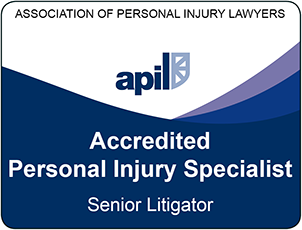In the Bolitho case, the defending doctor was acquitted both at the original trial, in the Court of Appeal, and finally in the House of Lords
The Bolitho Test is used by the Courts to assess Clinical Negligence claims. The test states that a doctor is not negligent if it can be proven that they acted in accordance with a reasonable body of medical opinion, provided that the Court finds such an opinion to be logical. When applying the Bolitho test, the Court takes an enquiring approach to the medical evidence in each case.
The Bolitho Case
The facts of the case comprised a tragic tale in which Patrick Bolitho, age 2, was admitted to Barts Hospital with croup. The next day he had two episodes where he went pale and had noisy breathing, as if something was stuck in his throat. On recovering from each episode he appeared well. After the second episode the nurse had difficulty doing his “observations” because he was jumping around and playing in his cot. The paediatric Senior Registrar was called after each episode but did not attend. A little over half an hour after the second episode Patrick deteriorated rapidly and suffered respiratory and cardiac arrest which caused severe brain damage.
It was accepted that the Senior Registrar had failed in her duty of care by not attending, but the question was whether the damage was due to that breach. It was established that only intubation before the final collapse would have averted the tragedy. The judge accepted the Senior Registrar’s claim that, even if she had attended, she would not have intubated Patrick after the first or second episodes. The case then hinged on whether a competent doctor would have intubated after the first two episodes.
Medical Expert Opinion
Eight medical experts had been brought before the judge. Five said that any competent doctor would have intubated after the second episode, if not the first. Three said the opposite, of whom the judge was most impressed by Dr Dinwiddie of Great Ormond Street. The prosecution put forward the argument that Dr Dinwiddie’s views were simply not logical or sensible. After the first two episodes it was unreasonable not to anticipate that there might be a life threatening event, and to take the step which would have prevented it. The trial judge agreed that this argument was appealing to him as a layman, but pointed out that the difficulty with this approach was that it invited the judge to substitute his own views for those of the medical experts.
Lord Browne-Wilkinson agreed with the trial judge. Dr Dinwiddie’s view had been that Patrick’s symptoms did not suggest a progressive respiratory collapse and there was only a small risk of total respiratory failure, which did not justify the invasive procedure of intubation. This view could not be held to be illogical.
Lord Browne-Wilkinson evidently wanted to refine rather than overturn the Bolam decision. He looked at the Bolam and Maynard judgements, where the words responsible, reasonable and respectable were used, and held that this meant that the court had to be satisfied that the expert opinion had a logical basis. He referred to two previous judgements, one concerning doctors and one concerning lawyers. In these cases, the defence had failed because there was “a lacuna in professional practice… by which risks of grave danger are knowingly taken”. He went on to say that “it will very seldom be right for a judge to reach the conclusion that views genuinely held by a competent medical expert are unreasonable. The assessment of medical risks and benefits is a matter of clinical judgement which a judge would not normally be able to make without expert evidence.”
The Bolam Test, the premise that a doctor is not liable for negligence if they act in accordance with a reasonable body of medical opinion, still stands following Bolitho unless “a judge can be satisfied that the body of expert opinion cannot be logically supported at all”.
How We Can Help
Our team are happy to discuss your medical negligence claim at a free initial interview. We can be contacted on freephone 0800 011 6666 or via email at legal@timms-law.com.
What Our Clients Say














